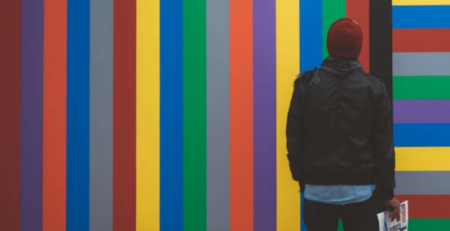Morning Rituals of Effective Creatives
Waking up in the morning can be a challenge. Everything goes smoothly as your brain realizes where it is and takes in the light of day. Then, plans for the day start to flood in – breakfast, chores, and most of all work.
The way you prepare for your day can either set you up with the right mindset and energy levels or it can ruin your disposition and stifle your thought process. For creatives, it’s especially important to begin the day on the right foot to see things from a new perspective and keep the imaginative energy flowing.
There’s no guarantee that the tips in this guide will single-handedly turn you into a creative genius, but following the right steps will leave you better prepared to meet the challenges of the day ahead. Try including some of the jump-starters in this guide to get your creative side working and keep it moving throughout the entire day.
Habits for Better Sleep
If you really want to start your morning out in the best way possible, you need to practice healthy habits the night before.
You’re probably well aware of the most typical pieces of advice – stay away from screens for an hour before you fall asleep, don’t eat big meals after seven, and on and on. Those are good general pieces of advice, but for creatives, there are a few more specific things to do and some others to get out of the habit of doing before you go to sleep each night.
- Log Off
Particularly in tandem with the explosion in remote working positions, creatives are plugged in nearly all the time these days. Turning off your television and laptop helps your body clock realize that it’s time to rest and get into sleep mode. When your computer is also the greatest signifier of work, staying away from it at night is vital.
But it’s not only in the last hour or two before bed that you should be powering everything down. Make sure your workday ends at a reasonable time and that you aren’t stuck replying to emails at all hours, especially if you’re on a partially or fully remote team that works across different time zones.

- Brush Your Teeth
Impressing your dentist isn’t the only reason you should make sure you brush your teeth in the evening. It’s also a great way to establish a morning routine and put your mind into wind-down mode.
Of course, other elements of your nightly routine will work just as well provided you set them up as nighttime signifiers. Perhaps it’s taking out the trash, taking a shower, or preparing your coffee machine to start brewing in the morning.
Whatever the specific stages of your nightly routine are, repeating them in a similar order or fashion each night will help your brain slowly calm down and begin processing the events of the day. When that happens, there’s less pressure to fall asleep immediately when you do climb into bed.
- Build a Real Bedtime
All the wisdom of our grandparents and earlier generations is to take the initiative and get those big jobs finished today rather than procrastinating. But there must be a time in the evening past which you stop engaging with problems. Leave yourself notes to complete them the following day after you’ve had a great rest.
That advice should sound privileged to people who are raising kids, going to school, and/or working second and third jobs to keep food on the table. It’s not that we’re advocating a luxurious bout of self-care here – it’s more an acknowledgment that you cannot stay awake 24 hours a day and you have to draw that line somewhere.
Naturally, some things can’t wait. Prioritizing things and staying organized in a general sense will go a long way toward affording yourself a real, fixed bedtime. Even if you’re sneaking in a few pages of a novel or just zoning out to some music, knowing you have at least an hour without concerning yourself with big problems leads to a calmer evening and a better night’s sleep.
- Distance Your Mind From Work
Your conscious mind is constantly working. Mulling over problems and testing out possible solutions in your head are both undeniably part of the design thinking process, but that doesn’t mean you should be doing either one ceaselessly.
This is closely tied to the rule about establishing a nighttime routine and ensuring you have a true bedtime. While those are related to the timing of your actions, distancing your mind from work addresses the qualitative aspect of your thinking.
When things are hard at work or you simply cannot come up with a way to fix a problem, it can plague your thinking. We’ve all been in that position where a certain client is disappointed or a project just isn’t working out. When it’s your job to save the day in these situations, it’s extremely challenging to ignore them even for a little while.
But your conscious mind is what suffers from cognitive overload when it has too much to process or becomes overstimulated. The users of design products see too many things to choose from and give up on the task. Creatives can have the same thing happen by repeatedly overthinking without taking a break.
- Don’t Multitask
The professional world has had a love affair with multitasking as a concept for decades upon decades, if not longer. But the world inside an office and the real world are separate and their interests often conflict.
Perhaps your managers and other stakeholders want you to be as efficient as possible, but you can ditch that sort of mindset when you’re preparing to rest. There’s no reason to try and finish chores while you’re brushing your teeth unless you’re truly that pressed for time.
Even if your evenings are packed with lots of things that simply have to be done before you can go to bed, try to focus on doing one thing at a time. It will allow your brain to run at a slightly lower capacity so that the total stop once you’re lying in bed with nothing going on will not feel so jarring.
The 6 Best Morning Routine Habits for Creatives
Everyone needs to keep those creative juices flowing no matter what line of work they’re in. For those in creative roles, the morning is a critical point to collect thoughts and spur the mind toward novel solutions.
Here are a few of the best morning routine habits for creatives to try out before they start their day:
1. Jot Down Ideas
It might be a dream journal on the nightstand or it could be a notepad at the breakfast table. Wherever you find it’s most convenient to keep a spare bit of paper and a pen around, you should make sure to find a place you can sit and wake up a little, have coffee, and record anything that comes to you during the night or happens to occur to your mind as you wake up.
The important factor here isn’t that your best ideas are slipping by you at certain parts of the day but rather that the order in which you do things matters. Writing down thoughts and ideas is an active habit, especially compared to passive consumption of things like the news, social media, or emails.
When you start off being active first thing, it primes your reactions throughout the day. You can take more initiative and focus more on ideas that you create instead of information that comes from elsewhere. In today’s information-focused world, outside information can heap upon you until it’s almost overwhelming. Concentrate on action to cut through the noise and get things done.
2. Stretch & Exercise
Particularly if you spend most of the day in front of a computer screen at the office or in your work from home station, it’s very important to put some attention to your physical health. Sitting still all day can lead to many negative health effects over the long term.
Plus, just like you prime your brain by doing active thinking in the morning, you can prime your muscles for activity with some stretching or workouts in the morning. You don’t have to invest in a barbell set up and do deadlifts or bench presses every day, but movement of some kind is important to your body.
Since it’s a different wavelength than the mental work involved in design thinking and other creative work, exercise is a nice shift of attention. It helps remind you that the workday is not all there is to life and it helps maintain energy levels as an added bonus.
Yoga is a great way to take advantage of the various benefits of morning exercise. You become more elastic and it won’t knock you out before the day has begun. A word to the wise: if you like to drink coffee or eat a big breakfast in the morning, go ahead and get your yoga or exercise out of the way beforehand. It’s much more comfortable and will make your coffee or breakfast more relaxing if you know you’ve already put in some physical work before you sit down.
3. Enjoy the Quiet
Some people wake up early just to have some alone time before the family, roommates, or the outside world come bounding into the picture. It’s difficult to find true peace and quiet if you’re commuting to the office or working remotely and have to pay attention to a multitude of different push notifications and alerts.
The morning and the evening are both great times to relax in a quiet place. TVs and computers have caused many of us to unwittingly waste the opportunity with background noise, streaming series, music, video games, and a host of other distractions. That’s not to say that all of these things are somehow without merit, but they interfere with silence without a doubt.
If possible, let silence be the background for all the other morning rituals in this guide. Music might help to wake you up, but if you leave it on the entire time you could be preventing your brain from a slow ramp-up in place of sudden action that doesn’t let up until evening.
4. Line Up Your Day
Much of the advice given to creatives centers around tackling the biggest challenges first while your mind is fresh and energy levels are high. However, this advice seems to forget that some people just aren’t morning people and will have a much more successful day if they can wait until the late morning or early afternoon to strike at big projects and other important tasks.
That’s why we prefer to tell creatives they should take the time to assess whether they need to place the most important items on their agendas in the morning or afternoon. With enough planning, you’re more likely to be able to stack your duties up so that you’re working when you’ll be most effective instead of wasting your most productive hours in a meeting or on a videoconference.
Although some of the things on your schedule may be out of your control, you might be able to stack other things up in your favor. Worst case, dedicate one morning or afternoon per week to handling meetings and conference calls that sap your energy and write it off as a necessity of doing business.
5. Measure Progress
As your morning routine progresses inevitably toward the day’s work, take the time to compare what is already done and what has happened to the goals you set for yourself earlier in the week, month, year, or even the night before.
Just like design thinking is iterative and needs metrics to measure success, so too does your daily life need to be assessed so that you know if you’re going in the right direction. Too many people fall into a funk where they feel like they’re getting nowhere or running in circles. You can stop that from happening with the right set of goals and persistent progress management.
Your goals don’t necessarily have to be the same as those of your boss or the company you work for, although there will probably be some overlap if you’re a career-minded creative. Make sure at least some number of the goals you set for yourself are well within your power to effect so that you don’t wind up feeling trapped in a situation outside of your control.
6. Eat a Full Breakfast
A full breakfast may not be three courses or even be served on a plate, but you should make sure that it is nutritious and gives your body what it needs to power its way through the day. Carbs and protein are important for energy. If you’re on a no- or low-carb diet, try and fit lots of plant-based protein into your morning meal. It will help you stay feeling full throughout the day and give your brain the building blocks it needs to power the creative process.
For some people, a full breakfast won’t be high in calories. A bit of fruit or a small serving of yogurt and oats will do. Some stick to a simple slice of toast or two. Others need eggs, cereal, or pancakes to feel full in the morning.
This is based on your eating habits and also on the way your body burns energy. As long as you listen to your body and note what kinds of breakfast make you feel full and give you enough energy for the day, you can build your first meal around that. Don’t stick to black coffee alone – as much as it has become the staple of artists and creatives, coffee doesn’t have all the nutrition you need for the day.

Conclusion:
Creatives need to stick to a certain morning routine to make sure they can stay effective every day. That doesn’t mean you need to have a rigid schedule each morning, but you will notice the benefit of doing the same sorts of things every night and morning.
Your body enjoys familiar routines and it needs to power down to process information. Ensure it has ample time and space to do so and you’ll be doing your creative engines a huge favor.
Alt text: A man in a blue button-up shirt puts on his shoes on a bed.












